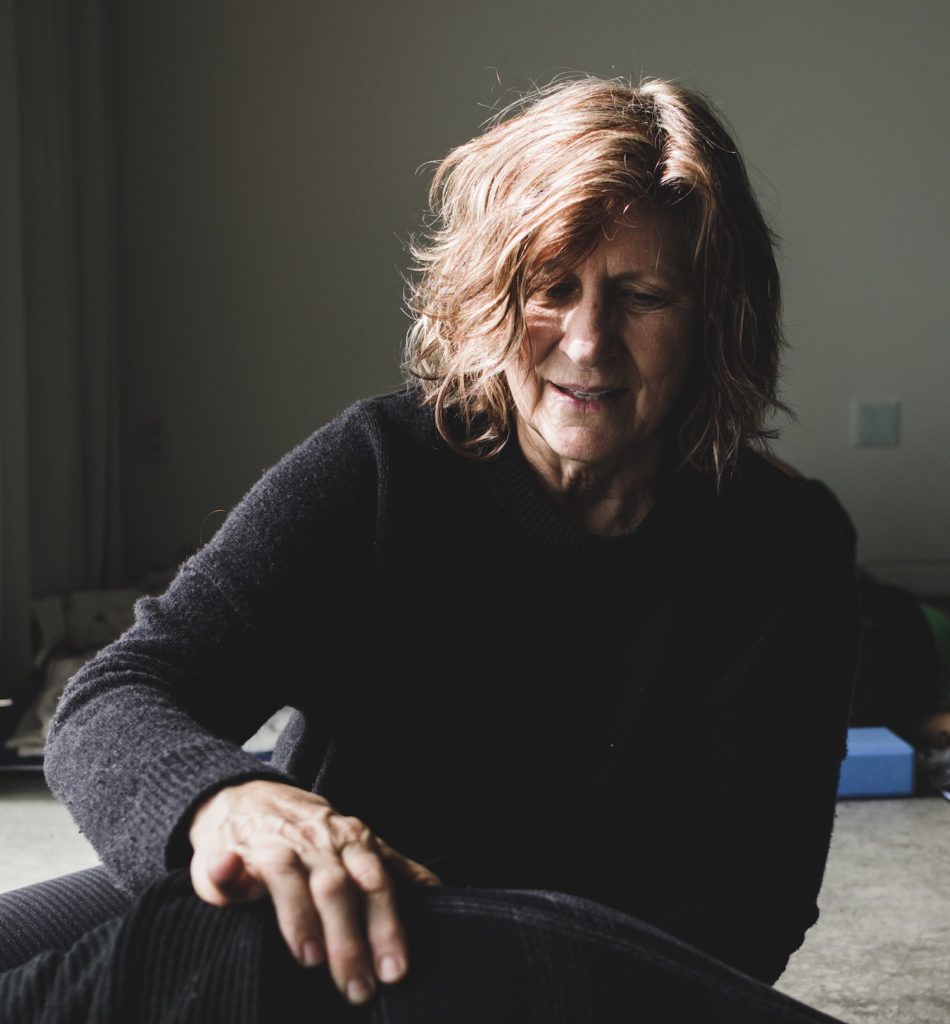Our Freedom Lies Within Variability
To feel the freedom of our variability is the very thing that renders us sane ~ Jorja Rivero

What is insane is that every woman today is captive to the top-down power over patriarchal norms and established standards that in one way or another drown out our innate knowing. Women are invariably caught in a net of impossibility. We strive to be perfect yet feel the admonishment of failing. Self judgement can easily rein over our inner domain and within this diminished environment we do not, and cannot, fully exist as the complex and nuanced beings that we are. There simply isn’t room to flourish in a man-made culture that opposes and even hates the very nature of our being.
As women living in a patronizing ‘over culture’ Internalized misogyny seeps under our skin, bruises our hearts, and occupies our minds. Our circuitous entangled ways are not taken seriously but deemed hysterical behavior leaving women to question themselves “am I just being crazy?” and asking each other “do I sound insane?”.
To grow ourselves beyond the cultural norm requires that we pause, slow down, and take our time to really question what truly supports the growth of our personhood. This inquiry becomes not simply a reaction to but a revolutionary practice of moving beyond social restraints. It is a multi-dimensional and emergent movement towards being reshaped by a much larger field of life – Mother Earth.
Recognizing internalized misogyny begin by exploring the messages we have heard from our family and cultural conditioning that now speaks from within as inner demands, a voice that says, “how dare you not know why you’re feeling what you’re feeling!” Often expected to know the correct answer we falter, admonish ourselves, and get caught in a never-ending cycle of blame. Believing that we are somehow not good enough, too much, or just plain stupid we shower ourselves with shame that drowns out non-linear perceptive ways of knowing.
Working with internalized misogyny is not an easy task as every time we go beyond the insistence of our conditioning the internalized voice, aka modernity, reasserts its authority by attacking us, whipping us back into shape, or drawing us back to what is familiar, known, and where we supposedly belong. This human conditioning runs deep within our bones. We may know in our heart that freedom is a birthright, but in every cell and within our ancestral story, freedom is not a given. Survival makes its own demands upon us.
Until there is enough room for variability, we can neither truly know who we are nor be known for all that we are. Only by turning towards our internalized misogyny and recognizing it can we begin to face our legacy and give up any notion that we can or should be content.
We stop striving to fix “it” whatever “it” is. And “it” by the way, is always hard to give up striving for. You are not just going to take “it,” whatever “it” is, out of your system. There is no catharsis big enough to give you lasting relief. There is no extraction that will make you perfect and there is no sure thing in this reclamation that removes internalized misogyny completely.
What is vital to our innate knowing is valuing this process of reclamation. By doing so we discover our own resistance to recovering what has been lost or buried alive. To begin reclaiming we start to notice ourselves colluding with the patriarchy by acknowledging the many sides of our personality that refuse to occupy a larger field of existence. We may even find ourselves surprised to uncover how complacent we are toward our own self-sabotaging strategies that plow over and bury deep the very longing of our soul.
Only by learning to value our inner experiences, entrusting the variability of life, and sensing our innate knowing does our perception and personal life expand. The instant we become comfortable with not knowing, not being right or even being all right in every moment, we sense deeper within and stand with our feet rooted into a profound cosmology of bio-intelligence that sustains and assures us of all that we are.
With time, awareness, tenderness, and spontaneous play we grow beyond the construct of internalized misogyny. We develop the capacity to not obey its voice while taking our own voice quite seriously. As we sniff around the edges of ourselves, exploring the boundaries and challenging our thresholds, we expand and offer ourselves space for more and more of our being to emerge. Lovingly tending our inner growth, we learn to tolerate our past choices and our current discrepancies while growing fully into our integral self.
This emergence happens faster when women work together and hold a creative space for each other. Gathering as women, we do the work that really cannot be done alone. All mammals co-regulate, and female mammals gather and create sanctuary. As human mammals we too benefit greatly from acknowledging our need for one another as practicing our call and response deepens our inner knowing. Ironically even our wish for autonomy emerges from this interconnectivity.
Waking up to our autonomy, agency, and audacity is a social taboo that feels very dangerous. And for many female bodies it is downright life threatening. By gathering, we protect the sacredness and strength needed for this process to unfold. The fear of annihilation or the devastation of isolation may be quite real. Yet the reality of maintaining internalized misogyny strangles our soul of existence. Every dictator knows the trick that once fear becomes internalized and the control invisible, no one needs to keep watch as dominance is maintained from within, and inner freedom is extinguished.
To be a “good girl,” the internalized voice of family and culture once told you that you must perform correctly. As a young child we instinctively learn to shape and manipulate ourselves to fit into whatever spoken or often-unspoken behavior is required for safety. It is here where some form of admonishment or deprivation occurs that ends up leaving a woman feeling fundamentally broken and explaining it to yourself as “I’m bad,” “deficient” or “not enough.” To continue, however, overriding our true feelings, thoughts, and sensations into our adult lives cuts us off from the complexity of knowing ourselves. It is exactly this complexity we are naming as variability that we betray. Once self-betrayal is normalized you will keep betraying yourself.
As women growing up in a male dominate culture, we do not yet know how not to keep betraying ourselves, so we keep asserting control over our behavior. Every time we bump into our uncertainty and feel the paralysis of fear, indecision becomes the crossroads of not confidently standing in our truth. Standing alone feels isolating and how scary is that. I am now responsible for understanding myself and I am responsible for making mistakes. It takes us all the way back to our young child who is so precious but whose confidence was thwarted.
The healthy response to being trapped in this cycle of self-betrayal is anxiety and depression and as a result, the early stage of dissolving our conditioning often happens through crying. The crying confronts the vulnerability of childhood and the sadness in recognizing our self-sacrifice. “I am no longer a child, yet until today I was living as if I were a child.” The tears can be compassionately understood as metabolizing conditioning. In this moment we start to create or deepen into a good alone place. To hold ourselves in love. It is not that we now have life figured out, but it is where we can begin to live deeply within our core and thrive as adult women.
Gathering supports this natural unfolding and self-witnessing. We do not analyze; we simply name what is showing up. Group work has a potency and a strength like an elixir; it can have magical properties. There is no hand holding or pacifying but there is a sense of support. The process is fluid – a murmuring of sorts where our group energy begins to weave a coherent web holding each of us and all that is emerging. This synergy moves us one way and then another. We may fall away, and we fall deeper into and out of the gratifying unexpected. Held by our own surprise, we keep exploring our natural movement and nurture the delight of confidence. No one has to say whether I agree with you or not. Instead, you simply sit in your own knowing that “this” is what is right at this moment.
To grow confidence without self-sabotaging also takes paying attention to what is emerging. By doing so we move from reaction and strategy to spacious inquiry. As we keep this practice of inner knowing alive, we begin to trust what we are experiencing. We gather the confidence even to say “I am going to pause right here, and I am just going to let myself feel all that I am feeling while I keep sensing”. “There is nothing I need to do. I do not need to pull my words coherently together, make sense, supply comfort, or show up and speak to the group in some specific way, but I can allow myself to notice whatever is going on within and simply stay curious.”
While all the “shoulds” keep surfacing and you are comfortable challenging them by listening to your true voice, nudges, and impulses, you are growing your capacity to be present to what is emerging each moment. Creative confidence flourishes as our lives navigate variability. We simply know that we do not know. We grow, we pause, we collapse, and so it goes.
Each time we begin noticing the insidious forms of internalized monitoring like a surveillance camera planted within, the corrective voice becomes noticeably separate from that which is you. Every woman has this internalized voice. It speaks at her, not to her. Part of the reclaiming of self is to invite this voice to come talk not to you but with you. In other words, by including our conditioning we take back our agency, our hearts, and our sanity.
NOTE: This musing is a braiding together of a recent conversation with relational therapist Jorja Rivero, LCSW. We are coming together Monday September 25th to offer our next 3-hr zoom women focused class on the Paralysis of Indecision. And we are forming in 2024 a Women’s Group that will meet once a month working with Internalized Misogyny through reflection, somatic movement, sensory awareness, creative play, and deep listening.
** Sane – The root word is the Latin sanus, which means healthy
Photo credit: Chris Lejarazu Unsplash

